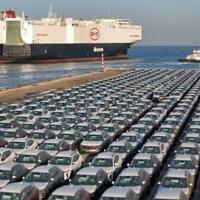The European Union is facing a challenging situation as it gears up to increase taxes on Chinese electric cars to safeguard European industry without escalating tensions into a trade war with Beijing, similar to what the United States has experienced.
The automotive sector in Europe, home to renowned brands like Mercedes and Ferrari, is at risk due to the shift towards electric vehicles and China’s advanced position in this transition.
When the European Commission initiated an investigation into Chinese electric car subsidies last year, it was to address what they perceived as unfair practices undermining European car manufacturers.
China strongly opposed this move, accusing Europe of protectionism.
The EU has until July 4 to implement a temporary increase in import duties on Chinese electric vehicles, currently at 10 percent, with the decision expected to be made in June.
As tensions rise, China has threatened to impose its own duties, potentially targeting Europe’s agriculture imports.
Experts suggest that the EU could raise duties to 20-30 percent, enough to deter Chinese exporters without fully stopping them, as estimated by research firm Rhodium Group.
European Commission President Ursula von der Leyen emphasized that the EU’s actions would be “targeted,” unlike the U.S., which quadrupled its duties on Chinese electric cars to 100 percent.
The EU-China standoff occurs within a broader context of increasing trade tensions between Beijing and Western nations, who are investing heavily in the energy transition and accuse China of unfair competition in various sectors.
However, the EU is proceeding cautiously, aiming to avoid a full-blown trade or technology war with China while recognizing the need for a change in their trade relationship.
– Different EU, US approaches –
China is a major car exporter globally, with Europe being a crucial market.
The EU’s imports of EVs from China have significantly increased, creating concerns about fair competition and the impact on European manufacturers.
Unlike the U.S., Europe’s approach is based on factual investigations rather than political priorities, aiming to restore fair competition in the market.
– Green transition risk –
Brussels must also consider the balance between addressing concerns about Chinese imports and achieving carbon emission reduction targets, especially as the EU plans to ban new fossil fuel-powered cars by 2035.
China has raised objections, warning that these measures will hinder the global green transformation and efforts to combat climate change.
The EU’s anti-subsidy probe has also exposed internal divisions among member states and manufacturers, with differing opinions on the investigation.
– ‘Politically driven’ –
The EU’s investigation into Chinese electric cars, initiated without a formal complaint, has sparked Beijing’s displeasure and potential retaliatory measures, such as anti-dumping probes and tariffs on European products.
The EU will need to decide on final duties by November, navigating carefully to address concerns while maintaining a stable trade relationship with China.





